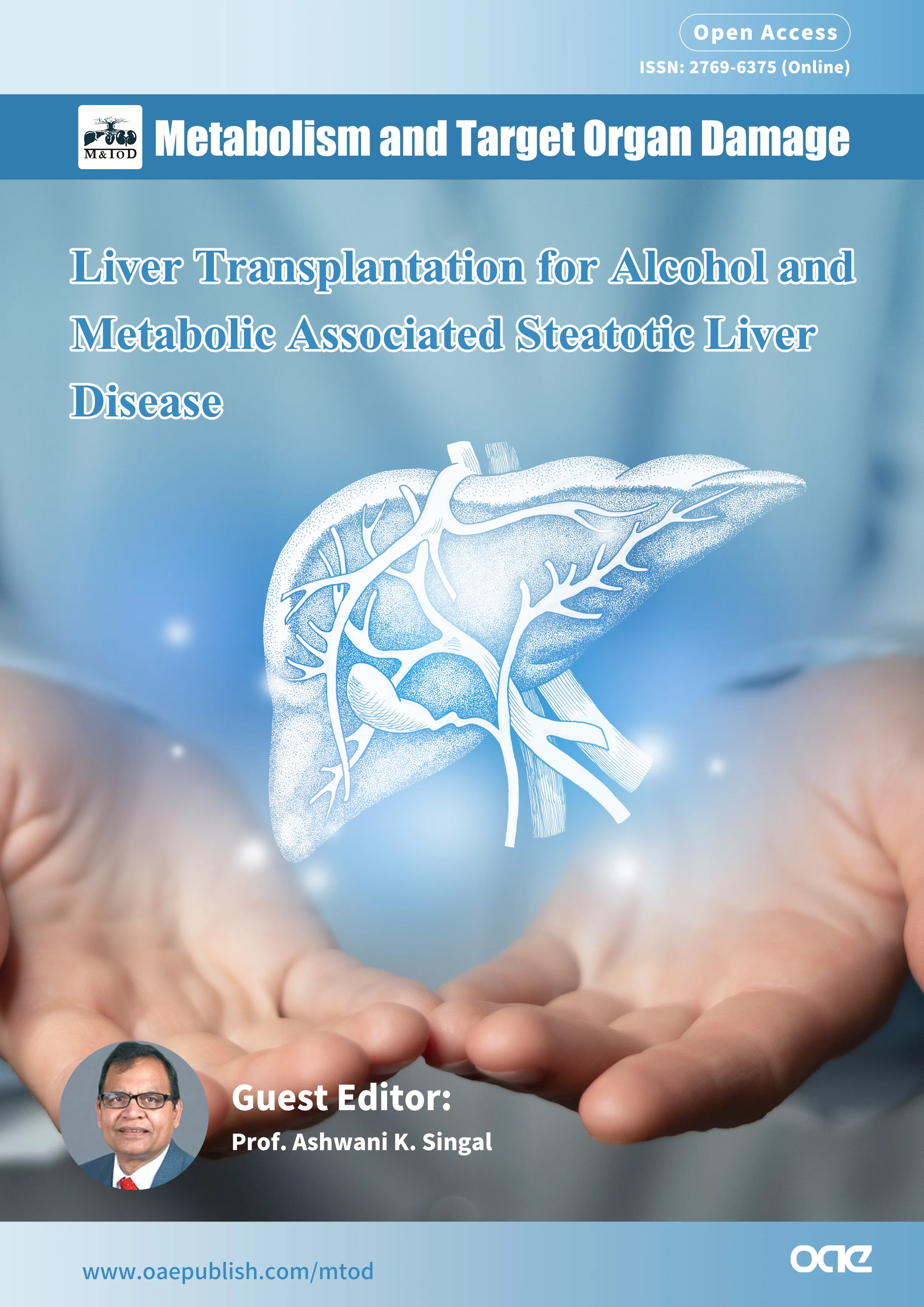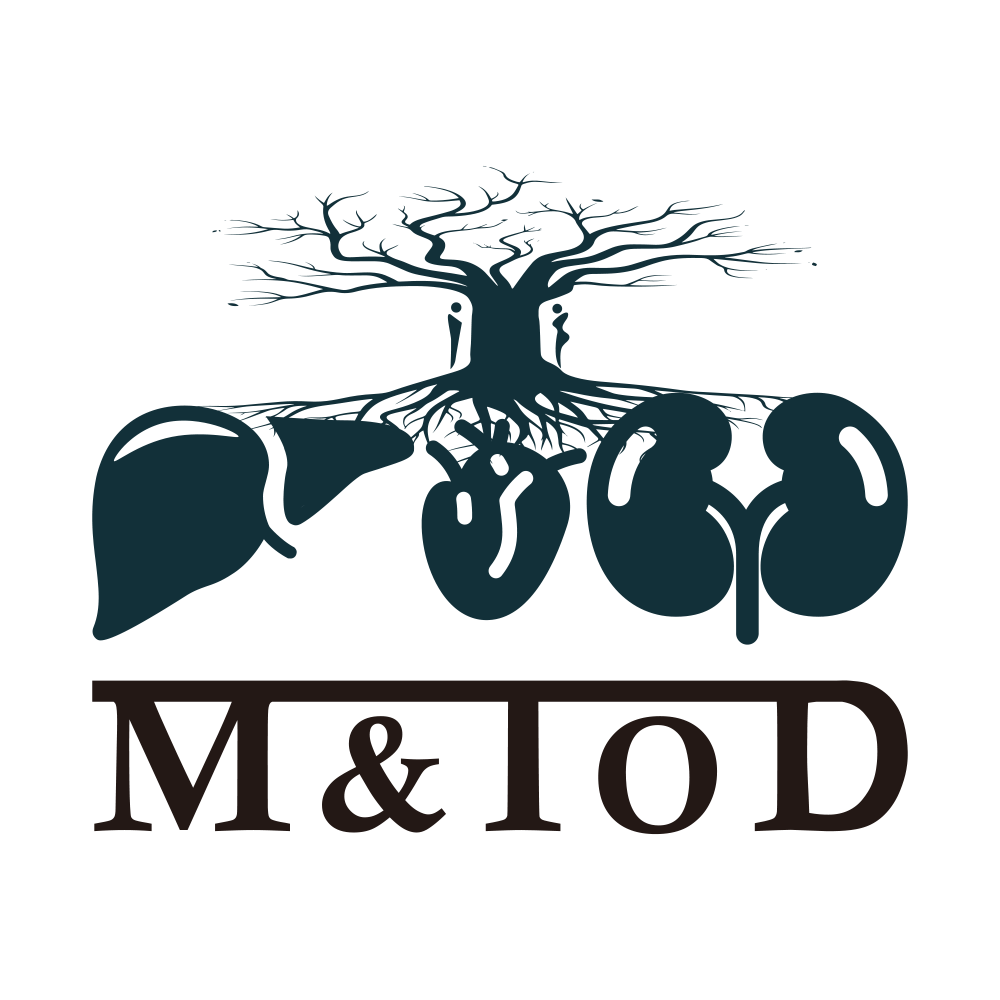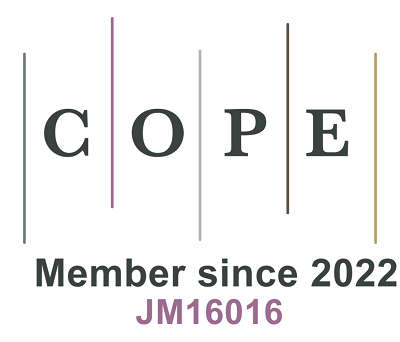
Topic: Liver Transplantation for Alcohol and Metabolic Associated Steatotic Liver Disease
A Special Topic of Metabolism and Target Organ Damage
ISSN 2769-6375 (Online)
Submission deadline: 31 Jul 2024
Guest Editor
Special Topic Introduction
Alcohol-associated liver disease (ALD) and non-alcohol fatty liver disease (NAFLD) are the two most common liver diseases, harboring the potential to cause cirrhosis and complications including hepatocellular carcinoma. The primary risk factor for ALD is alcohol use disorder (AUD), while metabolic syndrome is associated with NAFLD. The stigma surrounding the terminology of these two diseases has prompted a shift in nomenclature - from ‘alcoholic’ to ‘alcohol-associated’ for ALD and ‘NAFLD’ to ‘metabolic dysfunction-associated steatotic liver disease (MASLD)’. This revised nomenclature introduced another group, termed MetALD, encompassing individuals with obesity and AUD.
Liver transplantation (LT) remains the definitive treatment for end-stage disease. However, its universal application faces hurdles, including a shortage of deceased donors, especially in the West. Evidently, the prevention and management of respective disease risk factors are crucial in reducing morbidity and mortality. Acknowledging the challenges of implementing this at a population level, the identification and management of ALD or MASLD before the onset of cirrhosis becomes imperative. Given the invasiveness of liver biopsy, efforts are underway to develop non-invasive biomarkers and machine learning models utilizing artificial intelligence for disease stratification and long-term prognosis determination.
With the absence of effective pharmacological therapies, lifestyle changes remain the cornerstone for improving long-term outcomes. Encouraging a multidisciplinary integrated approach involving behavioral and pharmacological therapies for AUD in ALD patients is crucial. Recent advancements in effective medications and endoscopic treatments for weight loss have notably aided the management of MASLD patients. Over the last decade, the acceptance of LT for alcohol-associated hepatitis (AH) among ALD patients who develop severe AH with jaundice and fail to achieve six months of sobriety has helped select patients. However, there exists substantial heterogeneity across centers regarding LT evaluation for MASLD patients with cirrhosis, especially concerning the extent of cardiac work-up and the body mass index criteria for case selection. A pressing need remains for a standardized protocol for LT selection for MASLD and for early LT consideration in ALD patients
Liver transplantation (LT) remains the definitive treatment for end-stage disease. However, its universal application faces hurdles, including a shortage of deceased donors, especially in the West. Evidently, the prevention and management of respective disease risk factors are crucial in reducing morbidity and mortality. Acknowledging the challenges of implementing this at a population level, the identification and management of ALD or MASLD before the onset of cirrhosis becomes imperative. Given the invasiveness of liver biopsy, efforts are underway to develop non-invasive biomarkers and machine learning models utilizing artificial intelligence for disease stratification and long-term prognosis determination.
With the absence of effective pharmacological therapies, lifestyle changes remain the cornerstone for improving long-term outcomes. Encouraging a multidisciplinary integrated approach involving behavioral and pharmacological therapies for AUD in ALD patients is crucial. Recent advancements in effective medications and endoscopic treatments for weight loss have notably aided the management of MASLD patients. Over the last decade, the acceptance of LT for alcohol-associated hepatitis (AH) among ALD patients who develop severe AH with jaundice and fail to achieve six months of sobriety has helped select patients. However, there exists substantial heterogeneity across centers regarding LT evaluation for MASLD patients with cirrhosis, especially concerning the extent of cardiac work-up and the body mass index criteria for case selection. A pressing need remains for a standardized protocol for LT selection for MASLD and for early LT consideration in ALD patients
Submission Deadline
31 Jul 2024
Submission Information
For Author Instructions, please refer to https://www.oaepublish.com/mtod/author_instructions
For Online Submission, please login at https://www.oaecenter.com/login?JournalId=mtod&IssueId=mtod2407311871
Submission Deadline: 31 Jul 2024
Contacts: Jennifer Lee, Assistant Editor, [email protected]










